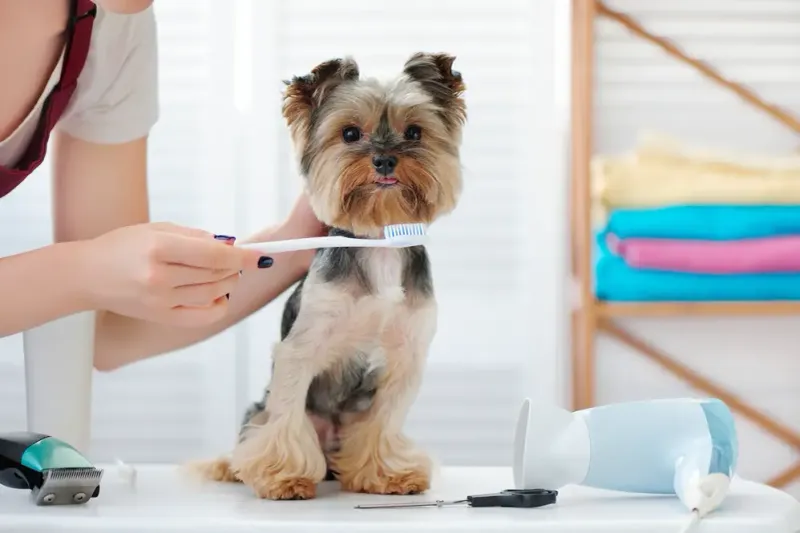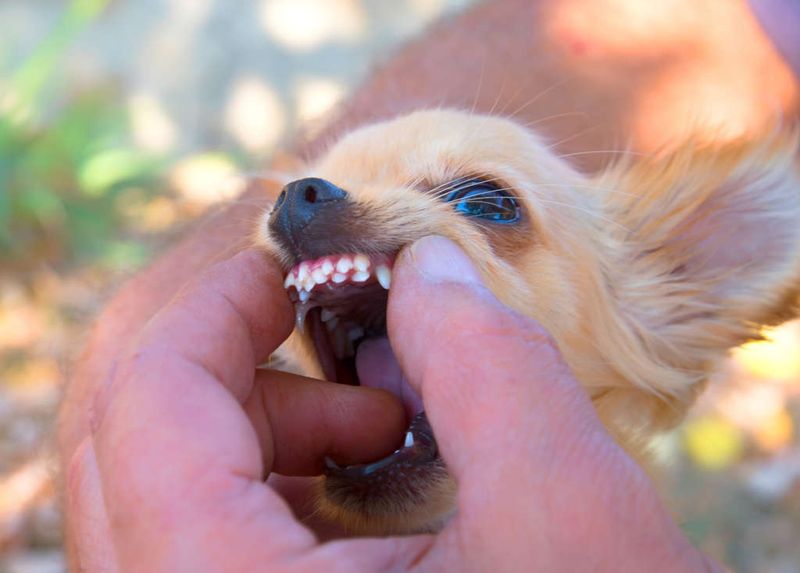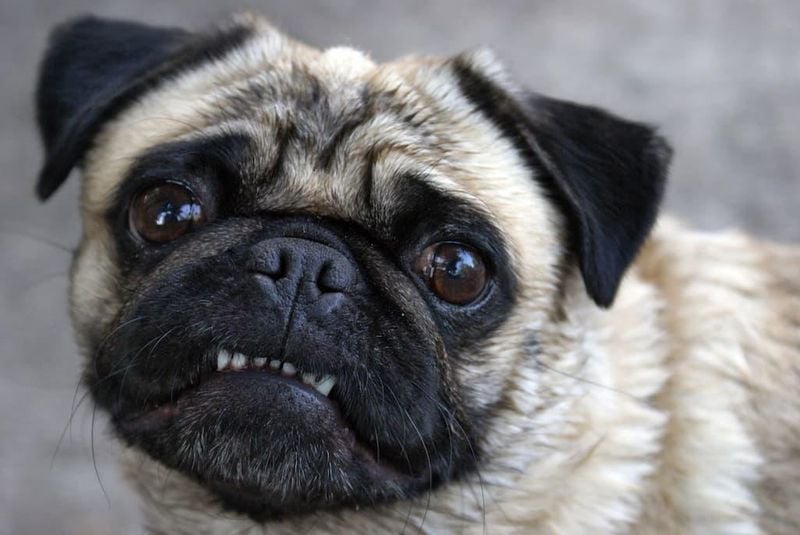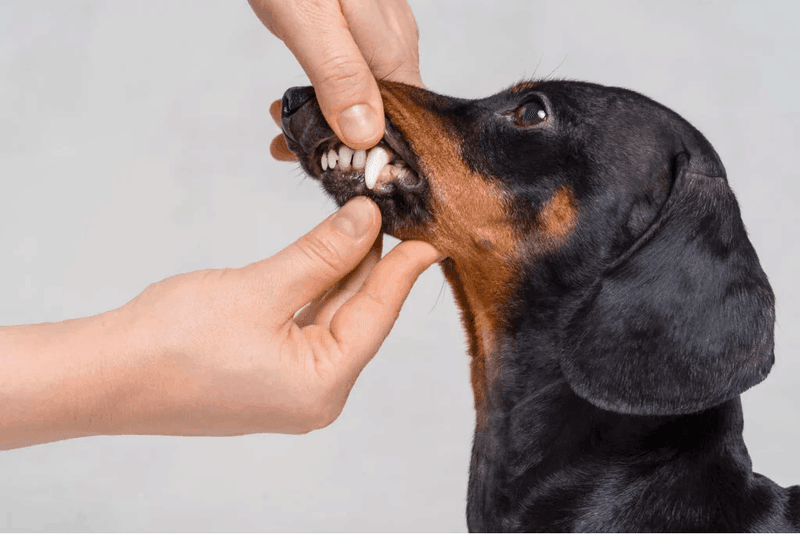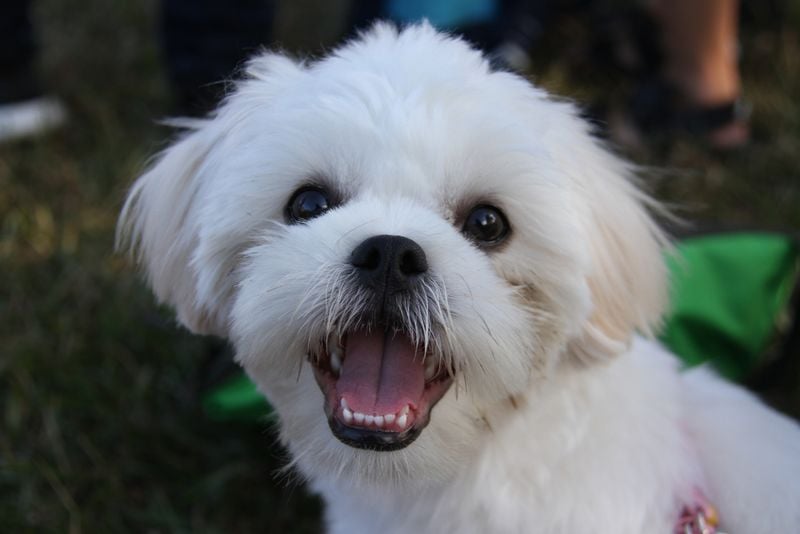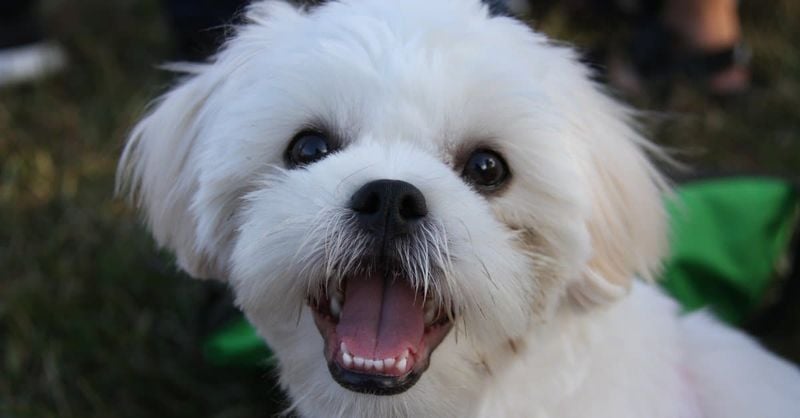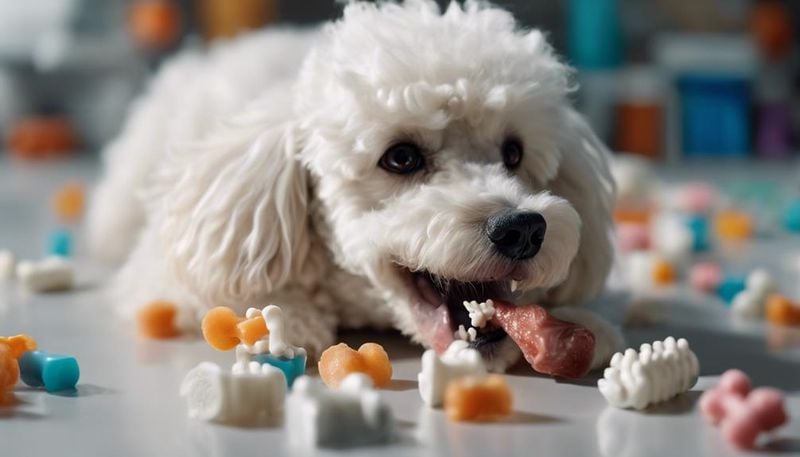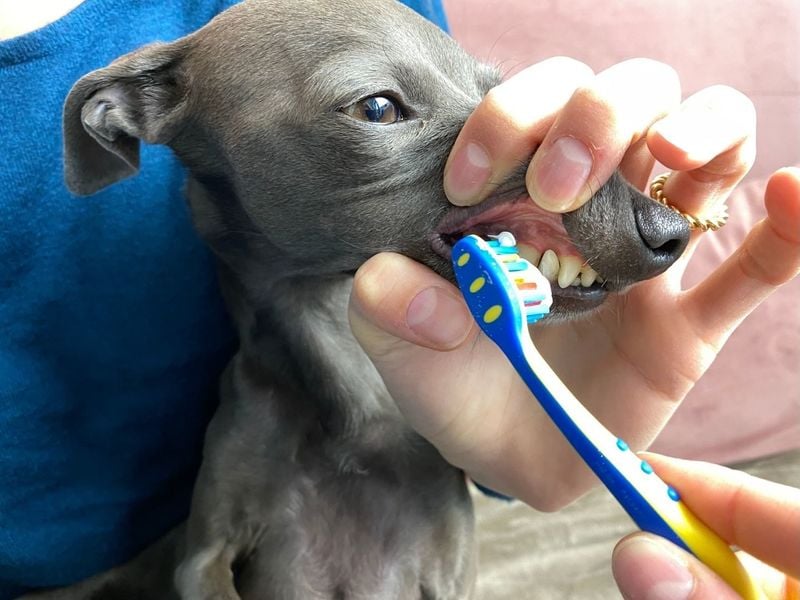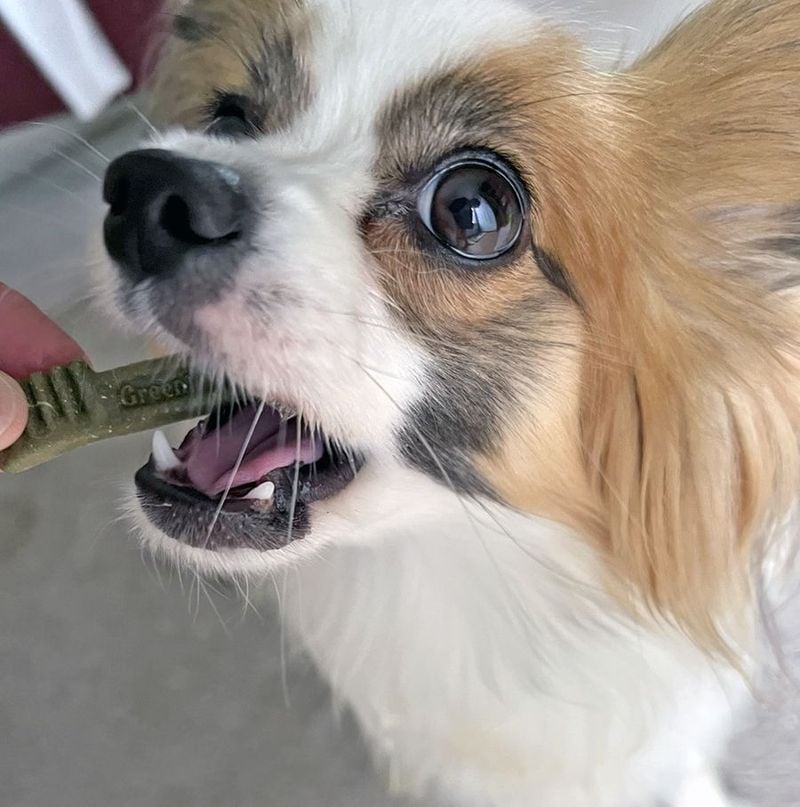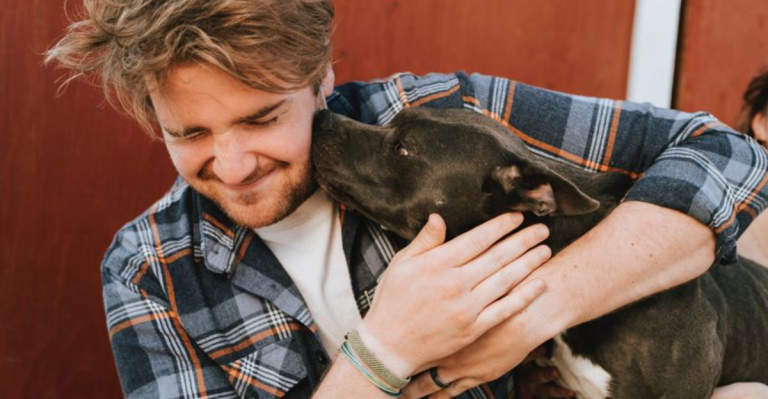10 Dog Breeds That Have Chronically Bad Teeth
Let’s face it—your dog’s breath could probably peel paint some days. But beyond the occasional stinky kiss lies a much bigger concern: dental health.
Just like humans, dogs can suffer from a variety of oral issues, including tartar buildup, gum disease, tooth decay, and even tooth loss.
And while any pup can develop dental problems without proper care, certain breeds are more genetically predisposed to oral woes than others.
You might be surprised to learn that some of the most lovable, pint-sized pups are the worst offenders when it comes to dental trouble.
From tiny Chihuahuas to smushy-faced Pugs, the structure of a dog’s mouth—along with hereditary traits—can make them more prone to painful (and expensive) tooth and gum conditions.
Brachycephalic breeds, for example, often deal with overcrowded or misaligned teeth due to their shortened skull shape, while toy breeds tend to have smaller mouths that make proper dental hygiene a challenge.
Neglecting dental care isn’t just about bad breath or yellow teeth—it can lead to serious health consequences. Bacteria from infected gums can travel to your dog’s heart, liver, and kidneys, potentially causing life-threatening complications.
That’s why it’s crucial to understand if your dog is at higher risk and take preventative steps early on.
In this guide, we’ll break down the breeds most susceptible to dental problems and explain why they’re more likely to need extra TLC when it comes to oral hygiene.
Whether you’re a seasoned dog owner or considering bringing a new pup home, knowing what to expect can save you (and your furry friend) a whole lot of pain—and vet bills—down the line.
1. Yorkshire Terrier
Known for their vibrant personalities, Yorkshire Terriers often struggle with dental health. Their small mouths lead to overcrowded teeth, causing plaque and tartar buildup.
This can lead to gum disease if not addressed with regular dental care. Brushing their teeth daily is highly recommended to prevent dental issues.
The dense crowding in their jaws creates a challenging environment for natural cleaning processes.
Untreated dental problems can cause discomfort and further health issues, making professional dental cleanings essential. Owners must be vigilant to maintain their pet’s oral hygiene.
In addition to regular brushing, dental chews and toys can help reduce plaque.
However, these should complement, not replace, routine care. Understanding the specific needs of Yorkshire Terriers helps owners keep their furry friends happy and healthy.
2. Chihuahua
Chihuahuas pack a lot of personality into their small frames, but their dental health often leaves much to be desired. These tiny dogs frequently suffer from overcrowded and misaligned teeth.
Their small jaws can’t comfortably accommodate all their teeth, leading to tartar accumulation and potential tooth loss.
Many Chihuahuas experience dental problems early in life, requiring proactive care to manage these challenges. Regular dental check-ups with a vet help to catch issues before they escalate into more severe conditions.
To support their dental health, owners should brush their Chihuahua’s teeth regularly.
Dental treats are beneficial, but not a replacement for brushing. Being diligent about their pet’s oral hygiene helps prevent the onset of serious dental diseases and ensures a happier, healthier life.
3. Pug
Adorable and full of character, Pugs are well-loved for their distinct appearance.
However, their charmingly flat faces come with dental challenges. Being brachycephalic, Pugs have shorter snouts, which often lead to crooked or overlapping teeth.
This misalignment increases the risk of dental disease, requiring diligent care. Owners should brush their Pug’s teeth regularly, as this helps minimize plaque buildup. Dental visits are crucial to catch potential issues early.
Pugs’ dental health can be improved with dental chews and specialized diets that prevent tartar formation.
Despite their dental woes, these dogs bring immense joy with their playful antics and affectionate nature. By understanding their needs, owners can ensure their Pugs enjoy a healthy, happy life.
4. Dachshund
Dachshunds, with their long, low bodies, are a breed full of surprises, including dental issues. They are prone to periodontal disease, especially as they age. Their teeth need daily attention to prevent painful dental conditions.
These dogs have a peculiar dental structure that can lead to plaque accumulation if not properly maintained. Regular brushing and dental check-ups are vital to keep their mouths healthy and pain-free.
Besides brushing, providing dental toys can aid in maintaining oral hygiene. These toys help reduce plaque and tartar, but they should complement, not replace, other dental care routines.
With proper attention, Dachshunds can lead a comfortable life, free from dental distress.
5. Maltese
Maltese dogs are known for their elegant appearance, but their dental health can be quite complicated. They often experience persistent baby teeth that don’t fall out on their own.
This leads to double rows of teeth, requiring early intervention to avoid extractions.
These dental anomalies can cause discomfort and affect the dog’s overall well-being. It’s crucial for owners to monitor their Maltese’s teeth and consult a vet if any issues arise. Regular dental care is essential in preventing long-term problems.
Brushing their teeth daily and scheduling frequent dental check-ups can help manage these challenges. With the right care, Maltese can maintain their charming looks and enjoy a life free from dental pain.
6. Cavalier King Charles Spaniel
Cavalier King Charles Spaniels are affectionate companions with a genetic predisposition to dental decay.
Their charming smiles often hide shallow jaws, which contribute to their dental challenges. Without proper care, they can develop severe gum infections.
Owners of this breed should be proactive with dental care, incorporating regular brushing and professional cleanings into their pet’s routine. These efforts help prevent tooth root abscesses and other painful conditions.
In addition to brushing, dental chews and water additives can support their oral health. By staying attentive to their Cavalier’s dental needs, owners can ensure their pets remain happy and healthy companions.
7. Shih Tzu
With their distinctive flat faces, Shih Tzus have a unique charm, but also face significant dental challenges. They often suffer from retained baby teeth, leading to crowding and gingivitis from a young age.
These issues require regular dental care to mitigate potential health problems. Brushing their teeth daily helps reduce plaque and prevent gum disease. Regular veterinary check-ups are essential to address any emerging concerns.
Dental toys and treats can support their oral hygiene, but are not substitutes for brushing. Proper care ensures that Shih Tzus can continue to charm everyone with their playful antics without being hindered by dental woes.
8. Toy Poodle
Toy Poodles are intelligent and agile, but their dental health often requires extra attention. Their smaller jaws can lead to plaque buildup and loose teeth. Regular brushing is crucial to prevent these issues.
These dogs are prone to bad breath, a common sign of dental problems. Owners should stay vigilant and brush their pet’s teeth daily, alongside providing dental treats to support oral health.
Incorporating regular dental check-ups into their routine helps catch potential issues early. With proper care, Toy Poodles can enjoy their playful lives without the discomfort of dental problems.
9. Italian Greyhound
Italian Greyhounds may appear sleek and delicate, but their dental health can be quite fragile. They often face issues with brittle teeth that are prone to breakage and decay, requiring vigilant care.
Owners should prioritize brushing their Greyhound’s teeth daily to prevent plaque and tartar buildup. Regular veterinary check-ups are vital to managing their dental health and avoiding extractions as they age.
Using dental chews and specialized diets can support their oral hygiene. With attentive care, Italian Greyhounds can maintain their graceful appearance and enjoy a pain-free life.
10. Papillon
Papillons are known for their distinctive butterfly ears, but their dental health often requires special attention. They commonly suffer from dental crowding, leading to tartar buildup and potential infections.
Regular brushing and veterinary check-ups are essential to prevent serious dental issues. Owners should be proactive in managing their Papillon’s oral hygiene to ensure their comfort and well-being.
Providing dental toys and treats can help reduce plaque, but should not replace brushing. A dedicated dental care routine ensures that Papillons can continue to enjoy their playful lives without discomfort.

